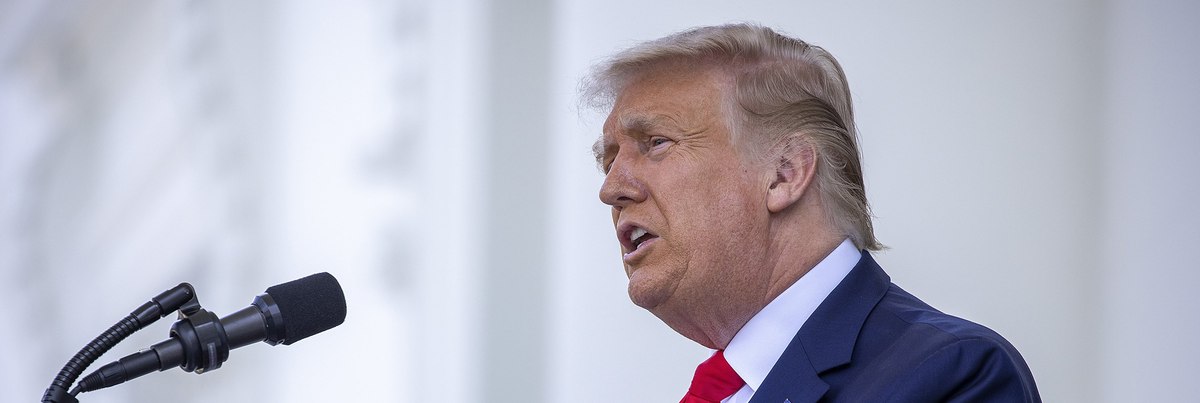Almost one week after Democrat Joe Biden was declared the winner of the 2020 presidential election, President Donald Trump’s voters agree with his ongoing unwillingness to accept the election results.
As President Trump challenges the vote count that shows Biden as the victor, most of his voters side with him. They doubt the election was fair, and many are dubious that their own vote was counted accurately. In the post-election Economist/YouGov Poll, Trump voters are upset – and even angry – at the outcome. However, some might feel better about it after recounts.
Two-thirds (67%) of the President’s supporters claim they will be more confident of the election result if there are recounts. Most Biden supporters, who support the outcome, do not think recounts will make any difference in their level of confidence.
The prevailing view of those supporting the President is one of serious distress at what happened last week. Two-thirds of Trump voters (65%) describe themselves as “upset” about the result, and nearly all of those upset voters (85%) were also “angry” about the results of the 2020 presidential election.
The “angry” response is highest among Trump voters who have often been described as his “base” — those without a college degree, those who live in rural areas, those in households that own guns, and those who believed the President would win both in the Electoral College and in the popular vote.
Many of the President’s voters were not sure he would win the popular vote, following his loss of it in 2016. About half (47%) said he would, but two in five (41%) Trump supporters expected that he would lose the popular vote but win in the Electoral College.
Biden voters are overwhelmingly enthusiastic (74%) about the election that elevated their candidate to the presidency. Biden voters were a little less hopeful going into the election. Nearly one in five said that while they expected the former Vice President to win the popular vote, they believed he would lose to the President in the Electoral College, as 2016 Democratic nominee Hillary Clinton did.
Before the election, only 18% of the President’s supporters had little or no confidence that their own vote would be counted accurately. Now, more than twice as many Trump supporters believe that their vote was incorrectly counted (44%). In contrast, Biden voters are 30 percentage points more likely this week to have “a great deal” of confidence their vote was counted accurately (47% to 77%).
Three in five Trump supporters today have no confidence at all the election was held fairly, something just 12% believed before the election.
President Trump’s supporters believe his claims that there was fraud during the election. Nine in ten supporters of the defeated President think mail ballots were manipulated to favor former Vice President Biden (by more than three to one, the President’s voters, like the President himself, disapprove of voting by mail, though Trump voters who cast a mail vote disagree).
Four in five of the President’s supporters believe fraud changed the outcome nationally, and 39% say it changed the outcome in their own state. Biden voters agree with Trump voters that there was some fraud nationally but disagree that it changed the outcome. The displeasure and distrust of the election expressed by Trump supporters has made many of them say the election’s true outcome may never be known. Nearly three in four Trump voters think it’s likely we will never know the real outcome of the election. Only 27% say it is likely we will know. But they don’t think the former Vice President truly won. Just 14% of Trump voters think Joe Biden won the election legitimately.
Trump voters, understandably, don’t want the President to concede anything. Just 22% believe he should concede. Nine in 10 (89%) want the President to contest the election in the courts. Three in five (62%) believe those Court contests will change the outcome of the election — although, more than one-third of the President’s supporters doubt that will happen.
See the toplines and crosstabs from this week’s Economist/YouGov Poll
Methodology: The Economist survey was conducted by YouGov using a nationally representative sample of 1,500 registered voters interviewed online between November 8 - November 10, 2020. This sample was weighted according to gender, age, race, and education based on the American Community Survey, conducted by the US Bureau of the Census, as well as 2016 Presidential vote, registration status, geographic region, and news interest. Respondents were selected from YouGov’s opt-in panel to be representative of all US citizens. The margin of error is approximately 3.2% for the overall sample.
Image: Getty










